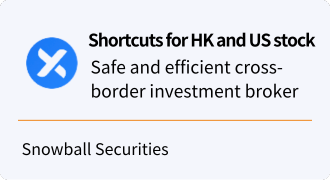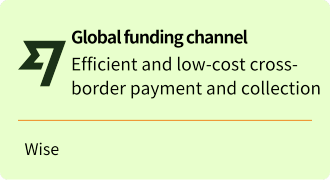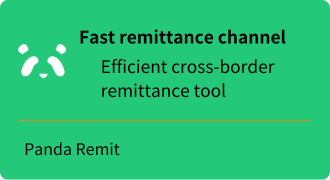Investment Philosophy vs Beginner Luck: Your Success Formula
[DISCLAIMER] This article is for educational and informational purposes only and does not constitute investment advice. Past performance doesn't guarantee future results. Markets carry risk; invest cautiously.
Do you remember the excitement of making money on your first stock purchase? That illusion of being a "natural investment genius"? Don't rush to deny it—87% of investors who successfully stay in the market for over 3 years have experienced this "beginner's luck."
Ironically, it's precisely this early random success that causes many intelligent people to ultimately fail in their investment journey. As a practitioner who has worked in quantitative trading for years, I've seen too many investors deceived by "beginner's luck"—they mistakenly believe investing is simple due to their first few accidental profits, only to pay a heavy price in the market's harsh education.
Today, I'll use psychology and real data to help you recognize a brutal truth: beginner's luck may be the biggest trap on your investment journey.
Target Audience: If you're reading this article, you're likely one of the 15% "survivors"—those who remain in the market due to early good luck. But this isn't a reason to celebrate; it's a signal to be more cautious. True investment masters will tell you: early success is often more dangerous than early failure.
Ⅰ. Why Investment Philosophy Matters More Than Beginner's Luck
Imagine if you drove for the first time without an accident, so you thought driving was simple and didn't need to learn traffic rules. This sounds absurd, but in the investment world, this happens every day.
In my years of quantitative trading, I've discovered that truly profitable investors share one common trait: they never attribute their early success to talent, but to luck. This humility motivates them to build a genuine investment philosophy.
According to DALBAR research data, the average stock investor's annualized return is 3-4 percentage points lower than the S&P 500 index. More interestingly, those who performed best early often perform worst later. This is the power of the "beginner's luck trap."
Core Insight: Your ability to read this article suggests you're likely an "early winner" selected by the market. But statistics show only 4% of early winners can maintain long-term profitability. What's the problem? Answer: lack of investment philosophy.
Ⅱ. Six Typical Signs of Missing Investment Philosophy: How Many Apply to You?
2.1. "Beginner's Luck Syndrome" (Most Dangerous)
Manifestation: Mistaking investment for simple due to accidental success in first few trades.
Psychological Mechanism: Your brain gets "hijacked" by early random success, forming false causal connections. Neuroscience research shows early unexpected success releases massive dopamine in the brain, creating strong positive feedback loops.
Real Case: A friend bought Tesla in March 2020, earning 80% in three months. He thought he'd found the investment secret and began studying various "growth stock investment methods." Starting in 2021, he lost 40% consecutively until 2022 when he realized it was just luck—catching the new energy vehicle boom.
Note: If 4 out of your first 5 investments were profitable, stay highly vigilant.
2.2. "Buy High, Sell Low" Syndrome
Manifestation: Buying when stocks rise well, panic selling when they drop.
Real Scenario: In early 2021, countless investors watched Moutai rise from 1,500 to 2,600 yuan. FOMO kicked in, buying at peaks. When Moutai pulled back to 1,800 yuan, they panicked and cut losses. With long-term value investing philosophy, they might have started dollar-cost averaging at 1,200 yuan.
2.3. "Herd Mentality" Patients
Manifestation: Buying whatever others buy, completely lacking independent thinking.
Typical Case: Remember the 2021 GameStop frenzy? Countless retail investors followed the crowd, ultimately left holding bags at the peak. Those with investment philosophy would ask: "Do this company's fundamentals support this price?"
2.4. "Perfect Timing" Obsession
Manifestation: Always seeking perfect entry timing, missing entire upward cycles.
My Observation: These investors often say "wait a bit more, it might drop further." Result: waiting from March 2020 to end of 2021, missing 80% of gains.
2.5. "Frequent Trading" Addiction
Manifestation: Watching screens daily, frequent buying and selling, with fees exceeding profits.
Data Support: Research shows investors with highest trading frequency have annualized returns 7-8 percentage points lower than buy-and-hold strategies.
2.6. "Emotional Roller Coaster" Syndrome
Manifestation: Too excited to sleep when markets rise, too anxious to eat when they fall.
Psychological Cost: These emotional swings not only affect investment decisions but seriously impact quality of life.
Ⅲ. Psychology Decoded: How Beginner's Luck Controls Your Brain
3.1. "Dopamine Hijacking": Why First Success Is So Dangerous
When you make money on your first stock purchase, your brain releases massive dopamine—this "reward hormone" is more potent than cocaine. Your brain starts believing: I've found the way to make money.
But science tells us this is just random events. Like coin flipping, you can't assume you've mastered "heads technique" because the first three flips were heads.
Experimental Evidence: Psychologists conducted an experiment having participants predict stock price movements. Those who "succeeded" in early predictions became increasingly confident, investing more money. Result: their final returns were lowest.
3.2. Survivorship Bias: Why Are You Still in the Market?
Here's a brutal fact: your ability to read this article means you've been "selected."
Statistics Show:
- 85% of beginners leave the market within three years
- Of the remaining 15%, 60-70% experienced early "beginner's luck"
- But only 4% can maintain long-term profitability
In other words: the market uses "beginner's luck" to select a batch of "survivors," but most of these survivors will eventually lose money.
3.3. Loss Aversion Amplifies the Beginner's Luck Trap
Nobel Economics laureate Kahneman's research found humans feel loss pain 2.5 times more intensely than equivalent gain pleasure.
For investors who've experienced "beginner's luck," this bias is more severe:
- They desperately want to return to the early "golden age"
- When facing losses, they adopt more aggressive strategies
- They struggle to accept "I might just be lucky"
Ⅳ. Case Comparison: Two "Beginner's Luck" Investors in the 2008 Financial Crisis
Let me share two real cases. Both experienced "beginner's luck" but had vastly different outcomes due to different investment philosophies.
4.1. Investor A: "Smart Person" Deceived by Beginner's Luck
Background: IT engineer who started investing in 2006, made money on first two investments.
Beginner's Luck Experience:
- 2006: Bought tech stock, earned 35% in three months
- Late 2006: Bought real estate stock, earned 50% in six months
- Key Mindset Shift: Believed he had investment talent, began studying "technical analysis"
Behavioral Timeline:
- 2007: Invested 500,000, believing he'd "mastered market patterns"
- March 2008: Market declined, considered it "technical adjustment," continued holding
- October 2008: Forced to cut losses at 300,000, but still believed in his "method"
- March 2009: Waited for "better buy signals," missed the rebound
- End 2009: Seeing the missed rebound, bought at high levels
Result: By 2015, not only made no money but lost 40%. More importantly, he still believes it was "imperfect execution," not flawed methodology.
4.2. Investor B: "Ordinary Person" Who Correctly Handled Beginner's Luck
Background: Elementary school teacher who also started investing in 2006.
Early Experience:
- 2006: Lost 10% on first mutual fund purchase
- Key Mindset: Recognized ignorance, began systematic learning
- 2007: Learned value investing philosophy, established own value investing approach
Investment Philosophy:
- Admit ignorance, learn before investing
- Believe quality companies inevitably rise long-term
- Market is voting machine short-term, weighing machine long-term
- Volatility is opportunity, not risk
Behavioral Timeline:
- 2007: Monthly dollar-cost averaging 3,000 yuan in index funds, never stopping
- 2008: Market declined, maintained dollar-cost averaging, even increased amounts
- 2009: Market rebounded, continued dollar-cost averaging, didn't stop due to profits
Result: By 2015, achieved 12% annualized returns, far exceeding the market. More importantly, she built a complete investment system.
4.3. Core Difference Analysis
Cognitive Level:
- Investor A: Deceived by early success, viewed investing as skill
- Investor B: Treated early failure as learning opportunity, built correct cognition
Behavioral Level:
- Investor A: Pursued "perfect investment methods"
- Investor B: Pursued "suitable investment philosophy"
Result Level:
- Investor A: Increasingly complex techniques, decreasing returns
- Investor B: Increasingly simple methods, increasingly stable returns
Ⅴ. Beginner's Luck Self-Diagnosis Checklist: Were You "Selected"?
I've designed a [Investment Philosophy Maturity Professional Assessment Scale], a comprehensive investor self-evaluation tool to help you fully understand your investment maturity. (The assessment link for "Investment Philosophy Maturity Professional Assessment Scale" will be provided at the article's end.)
Ⅵ. Special Warning: How to Properly Handle Your "Beginner's Luck"
6.1. Step One: Acknowledge Luck's Existence
This is the hardest step because it challenges your self-perception. But it's also the most important step.
Practical Tips:
- Review your first 10 investments, honestly analyze: which were luck, which were judgment?
- Calculate "luck contribution rate": If you started investing in 2020-2021, at least 60% of your returns came from luck
- Do "parallel universe test": If you only started investing in early 2022, would you have the same confidence?
6.2. Step Two: Understand Survivorship Bias
Your ability to read this article is itself a probability event.
Data Revelation:
- Millions begin investing annually
- About 30-40% experience early success
- But 85% leave the market within three years
- You're one of that 15% "survivors"
Key Insight: Markets don't reward smart people; they reward persistent people. The prerequisite for persistence is often early good luck.
6.3. Step Three: Redefine Success
Wrong Definition: Success = Making lots of money
Correct Definition: Success = Having sustainable investment system
Specific Actions:
- Stop bragging about early returns: they might mainly come from luck
- Start recording decision processes: not just looking at results
- Build long-term thinking: measure success over 10 years, not 10 months
6.4. Step Four: Establish "Luck Buffer" Mechanism
Fund Management:
- Treat early profits as "luck bonuses," manage separately
- Real investing starts after learning investment philosophy
- Never treat early success as repeatable performance
Psychological Management:
- Regularly remind yourself: "I might just be lucky"
- Treat each loss as "paying back luck debt"
- Consider long-term stable returns as true success
Ⅶ. Psychological Combat: How to Overcome the Beginner's Luck Trap
7.1. Technique 1: Build a "Luck Diary"
After each investment decision, record:
- What was the rational basis for this decision?
- What role did luck play?
- If repeated 100 times, how many times would I make the same decision?
7.2. Technique 2: Use "Reverse Beginner's Luck" Test
Before making investment decisions, ask yourself:
- If I were a beginner who just lost 50%, would I still make this decision?
- If my first 10 investments all failed, would I still use this method?
7.3. Technique 3: "Humble Investment Method"
- Always assume 50% of your success comes from luck
- Control investment amounts within "can bear total failure" range
- Regularly learn new investment knowledge, maintain humble mindset
7.4. Technique 4: Find "Reverse Mentors"
Find an investor who experienced severe losses but ultimately succeeded as a mentor. They can better help you recognize market cruelty and luck's importance.
Ⅷ. Conclusion: From Beginner's Luck to Investment Philosophy
After years of quantitative trading practice, I deeply understand: beginner's luck is the market's first test for you, not a reward.
If you pass this test—acknowledge luck, stay humble, build philosophy—you might become one of the 4% long-term winners. If you're deceived by beginner's luck, you'll likely become a long-term market contributor.
8.1. Three Immediate Action Steps:
- Complete beginner's luck risk assessment tonight, honestly face your early experiences
- Re-examine your investment goals: want to get rich overnight through luck, or build sustainable wealth growth?
- Start reducing positions and learning tomorrow: lower investment amounts to comfort zone, focus on building investment philosophy
8.2. My Deep Insight:
Investment's essence isn't predicting markets or copying success, but managing luck. When you learn to coexist peacefully with luck—neither denying its existence nor depending on its favor—you truly embark on the right investment path.
Remember Buffett's words: "Time is the friend of the wonderful investor and the enemy of the mediocre investor." But I'll add: "Luck is the trap for novice investors and the friend of mature investors."
8.3. Forward-Looking Perspective:
With AI and quantitative trading development, technical analysis will have decreasing advantages, and "beginner's luck" will become harder to obtain. Future investors must either have deep investment philosophy or sufficient luck, but those relying on both are destined for market elimination.
In my next article "Five Investment Philosophies Explained: Value Investing Philosophy—Being Greedy When Others Are Fearful," I'll detail Buffett's value investing philosophy, including how to find undervalued quality companies, maintain rationality during market panic, and transform "beginner's luck" into "long-term advantage."
8.4. Special Interaction: Beginner's Luck Resonance Test
Test: Are you a "survivor" selected by "beginner's luck"?
Share your first three investment experiences in the comments (anonymously allowed), tell me:
- How were the profits and losses?
- What were you thinking then?
- Looking back now, what percentage was luck?
I'll personally analyze the luck components and provide targeted advice. Remember, acknowledging luck is the first step to growth!
Discussion Topics:
- Do you think your investment success comes mainly from judgment or luck?
- If you could restart investing, what mindset would you use?
- Have you ever had the illusion "I'm an investment genius"?
If this article made you reconsider your investment journey, please share with friends who might also be deceived by "beginner's luck." Sometimes, the best investment advice is one sentence: You might just be lucky.
Remember: On the investment road, the biggest enemy isn't market volatility, but overestimating your abilities. Acknowledge luck, respect markets—this is the first step to becoming a true investor.







